Nigeria is undoubtedly one of the best footballing nations in Africa and even in the world and the country has always produced great players, mostly at the youth level, especially Under-17.
However, while some of those young players went on to become superstars for the West African nation’s mens’ senior team, the Super Eagles, a whole lot more of those players simply faded into oblivion.
Complete Sports’ OLUYEMI OGUNSEYIN discusses ten Nigerian players who have failed to fulfill expectations…
Macauley Chrisantus (Hetten FC, Saudi Arabia)
It is so sad to report that former Under-17 World Cup with the Golden Eaglets of Nigeria, Macauley Chrisantus (pictured above) is now plying his trade with Hetten FC, a club in the Saudi Arabian Second Division.
Chrisantus was the highest goal-scorer during the 2007 FIFA Under-17 World Cup after scoring seven goals in as many appearances for Nigeria which won its third title in the Republic of South Korea.
The likes of Chelsea, Tottenham Hotspur, Liverpool and even Real Madrid were all said to have been interested in signing the striker after he exploded onto the under-age scene by firing Nigeria to victory.
Indeed, Chrisantus had only been denied a Golden Shoe and Golden Ball double by a certain Toni Kroos who went on to win all available trophies with Bayern Munich including the FIFA World Cup with Germany.
After the emergence of Chrisantus during the youth tournament, football faithful expected him to shine and become one of the best players in the world but that can never happen again.
Chrisantus also never got the opportunity to play for the Super Eagles, instead becoming a journey man of some sort, moving from one club to the other as he is currently playing for his 14th club.
After leaving Hearts of Abuja in 2007, Chrisantus has played for Hamburger SV II, Hamburger SV, Karlsruher SC (loan), FSV Frankfurt (loan), Las Palmas, Sivasspor, AEK Athens, Reus, Lamia, Real Murcia, HJK Helsinki, Conquense and Zob Ahan before joining Hetten in 2020.
At 29 years of age, Chrisantus has kept on moving on his missionary journey while he has failed to shine for both club and country like he did at the Under-17 level 13 years ago.
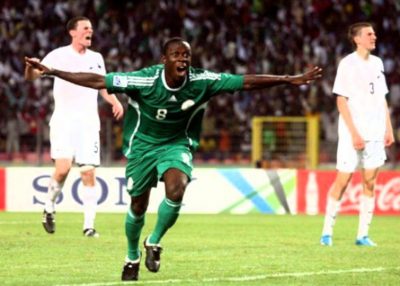
Stanley Okoro (Abia Warriors, Nigeria)
Prior to the Under-17 World Cup in 2009, a tournament which was hosted by Nigeria, Stanley Okoro had already been referred to as “Little Messi” because he had great skills just like Barcelona legend, Lionel Messi.
Okoro who is also a left footer just like the original Messi did go on to excel at the tournament which saw the Golden Eaglets emerge as the runners-up following their 1-0 defeat to Switzerland in the final.
“Little Messi” dazzled a whole lot of football followers and pundits alike with his mesmerizing dribbles and mazy runs which culminated in him finding the back of the net on three occasions at the tournament.
After the Under-17 World Cup, Okoro secured a transfer to Almeria in Spain but failed to shine in the few matches which he played. He made his Super Eagles debut in 2012 but has failed to earn a call-up since then.
Also Read: Top 10 Fastest Men In Nigeria’s Sprint History!
The attacker who currently stars for Abia Warriors in the Nigerian Professional Football League (NPFL), having joined the Aba-based side in 2016 has also had a nomadic football career, having played for many clubs.
Okoro has so far played for the likes of Heartland FC, Almeria in Spain, Bulgarian side, Cherno More Varna (loan), Plateau United and Abia Warriors, making it six clubs in all but failed to shine.
He faded out quickly as some believed he is older than the original Messi but had falsified his age. But at 27-years of age, it will take more than a miracle for Okoro to go on and rule the football world again.
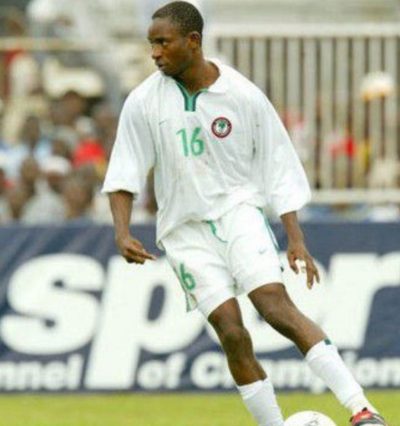
Femi Opabunmi (Retired)
Femi Opabunmi was just 17-years-old when he made history by playing for the Super Eagles against England in the 2002 FIFA World Cup and he remains the youngest player to have represented Nigeria at the mundial. But after playing against his heroes which are the likes of David Beckham and Michael Owen almost two decades ago, his promising football career never reached its full potential.
Opabunmi caught the eye at the 2001 Trinidad & Tobago Under-17 World Cup that quickly transformed into exciting moments at club senior team level in Switzerland and France.
The Oyo State born attacker was the arrow head of the team and his goals helped Nigeria to reach the final and he won the silver shoe and the bronze ball at the end of the tournament.
But for Opabunmi’s eye problems, he may have taken his game higher than his surprise Japan/Korea 2012 World Cup appearance. A combination of poor form and eye problem, however, dimmed the lights for this once interesting winger.
He played for Shooting Stars, FC Chamois Niort in France, Hapoel Beer Sheva of Israel and Grasshoppers of Switzerland and went on to make three international appearances for Nigeria.
Opabunmi suffers from glaucoma and he is now totally blind in one eye. It cut short his career and he has been struggling financially ever since. The 35-year-old once revealed how he contemplated suicide.
Sani Emmanuel (Unattached)
‘But where did it all go wrong for Sani Emmanuel?’ I believe would still be the question on the millions of Nigerians at home and in diaspora after the winger’s football career took a turn for the worse.
From the Synagogue Church of All Nations’ owned My People FC, Emmanuel made it to the Nigerian football team that lost 1-0 at home to eventual champions, Switzerland during Nigeria 2009 FIFA Under-17 World Cup.
He also finished the tournament by winning the Golden Ball (Player of the tournament) with five goals despite playing as a substitute all through the Eaglets’ matches at the youth football competition.
A career-threatening injury stopped Emmanuel from moving up the ranks in the Nigerian national team. He couldn’t feature for the Super Eagles as Kenneth Omeruo and Ogenyi Onazi from the same 2009 Under-17 tourney.
At the age of just 27, it is disheartening to know that Emmanuel is no longer playing active football after surviving a career-threatening injury in which he underwent surgery thanks to the contribution of Onazi.
Emmanuel played for Lazio in Italy, Salernitana (loan), FC Biel-Bienne (loan), Beitar Jerusalem in Israel and Oskarshamns AIK before putting an end to his once promising football career.
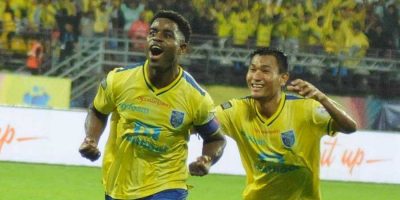
Bartholomew Ogbeche (Kerala Blasters, India)
Once a wonderkid at Paris Saint-Germaine, Bartholomew Ogbeche is definitely one of Nigeria’s football hopefuls who never made it to the peak of their careers or even played up to their maximum potential before fading out.
Ogbeche was on the pay-roll of PSG for six years and that included two loan spells away at Bastia and Metz. He failed to make an impact in France at club-level but there was a lot of hype surrounding the then 17-year-old in Nigeria.
The attacker was given the revered number nine shirt by the then Super Eagles manager, Adegboye Onigbinde who picked him in the squad for the 2002 World Cup which took place in South Korea and Japan.
Ogbeche, however, last played for the Nigerian national team in an international friendly against the Republic of Ireland in the year 2004 which saw him score a brace in the 3-0 win for the West African country.
The Nigerian forward was expected to take off after that during what is usually considered as peak years of a footballer.
However, he only turned out to be a late bloomer. The United Arab Emirates, Spain, Macedonia and England were his destinations in the following years except for an above-average individual season in 2009-10 with Cadiz where he was the top scorer with nine goals.
At 17-years and eight months, Ogbeche remains Nigeria’s youngest player ever to start a World Cup game (vs Argentina on June 2, 2002). He is also the country’s second-youngest player (after Femi Opabunmi) to be picked for a World Cup squad.
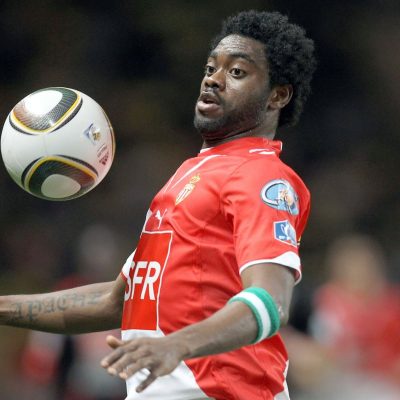
Haruna Lukman (FC Ararat Yerevan, Armenia)
Former Nigerian youth international, Haruna Lukman is no doubt one of those stars from whom much was expected but achieved so little in the game of football despite his prodigious talent.
The former AS Monaco of France midfielder was once touted to be a capable replace the ageing Austin Okocha as Nigeria’s anchorman in the midfield but that seems to be only an umagination.
A great attacking midfield player, though, he has failed to live up to expectations. Lukman has played in France, Ukraine and now plays in Armenia but has never been a top Super Eagles player.
Despite the fact that he possesses great pace, a lovely eye for a pass and precise shooting prowess, his major issue has always been that of pride and disrespect for coaches both at club and national team levels.
Lukman is one of a few Nigerian players to have played at the Under-17, U-20 and senior national levels, yet, it cannot be said that he has gone on to achieve his full potential as a footballer.
Korea 2007 FIFA U-17 World Cup-winning captain, the 27-year-old has also been a journey man, having played for Ararat Yerevan, FK Palanga, Dynamo Kyiv, FC Astana, Anzhi Makhachkala, Goverla Uzhgorod and Monaco.
Isaac Success (Watford, England)
Former Nigerian youth international, Isaac Success who is on the roster of Watford in England is another player who has failed to take his once very promising football career to the next level.
This is simply because the attacker’s situation at Watford appears to be deteriorating with lack of playing time and that has been the case under three managers so far this season.
Under three managers at Vicarage Road so far during the 2019–20 season, Javi Gracia, previous boss, Quique Sanchez Flores and incumbent, Nigel Pearson, Success has failed to get a look-in.
It is disheartening that the 24-year-old who won the FIFA Under-17 World Cup with the Golden Eaglets of Nigeria in 2013 has played only 54 EPL matches with just 11 starts since joining the Hornets in 2016, scoring twice and making two other assists.
The fringe Super Eagles striker has so far made a hugely disappointing five substitute appearances in the English elite division this season without even a goal or assist to his name.
Success will be all out to salvage his English Premier League (EPL) career which has been anything but successful when the 2019/20 season restarts on Wednesday, 17 June.
Kelechi Nwakali (SD Huesca, Spain)
It appears now is the time for Kelechi Nwakali who is yet to fulfil expectations to make an exit from Spanish club, SD Huesca if the midfielder truly has any plan of rejuvenating his stuttering football career which promised a lot few years back.
Nwakali burst into limelight after captaining Nigeria’s Golden Eaglets team that paraded the likes of Victor Osimhen and Samuel Chukwueze to win the 2015 Under-17 World Cup in Chile.
His inspiring displays earned him the tournament’s Golden Ball ahead of Lille’s Osimhen and Mali’s Aly Malle. Nwakali’s stock rose after joining Arsenal on a five-year deal from Nigeria’s Diamond Football Academy.
And after failed loan moves to Dutch clubs, MVV Maastricht, VVV Venlo and Porto B of Portugal, the youngster was shipped out of the Emirates Stadium to Huesca in the winter transfer window in January.
Before football went into a break as a result of the Coronavirus Pandemic breakout, Nwakali did not make as much as a single
appearance for the Spanish Segunda side.
There is nothing to doubt about Nwakali’s talent. There are some exquisite football qualities that the 22-year-old possesses and among them are dribbling skills and the ability to make assists.
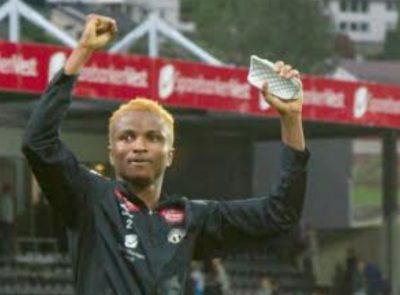
Chidiebere Nwakali (Unattached)
The older of the Nwakali brothers, Chidiebere, an U-17 World Cup winner with the Golden Eaglets in 2013 who is currently unattached has also failed to achieve his full potential in the world of football.
Chidiebere has also like his younger brother, Kelechi endured a stop-start career. He was first signed by Manchester City back in 2015 but was released after a number of disappointing loan spells in Spain and Scandinavia.
The 23-year-oldi’s contract at Swedish club-side, Kalmar was terminated earlier in January this year as a result of the midfielder returning late from Christmas break. His one year stay with the club ended on a saour note.
Nwakali Sr. was sacked for missing pre-season training after a spat with Kalmar over the payment for his flight ticket to return to the club after visiting Nigeria for the Christmas break.
He returned to Sweden weeks after the deadline had expired but Kalmar announced via their sporting director, Jorgen Petersson
that they had terminated the remainder of the 5-year deal he signed last year summer.
Reports surfaced last week that a Faroe Island-based club, Ki Klaksvik FC confirmed his signature and will announce sealing of the deal in two weeks but the ex-Aberdeen of Scotland midfielder has denied the story.
Taiwo Awoniyi (Mainz 05, Germany)
Former Nigerian youth international, Taiwo Awoniyi has shown flashed of his brilliance in recent years but the striker is still very far from reaching the heights we all expect him to.
Awoniyi is spending the whole of the 2019-20 season on loan at FSV Mainz 05 after sealing a temporary switch to the Bundesliga team from parent club, Liverpool in August 2019.
The striker who only started to see regular game time since the season resumed last month has, however, netted once after making eleven appearances in the German Bundesliga for Mainz.
Awoniyi is another player who showed so much potential at U-17 level but currently struggling. The 22-year-old was also part of the Golden Eaglets squad that won the U-17 World Cup in 2013.
Liverpool signed him in 2015, however, he could not play for the Reds and was sent out on loan. Awoniyi has since had spells at FSV Frankfurt, NEC Nijmegen, Royal Mouscron, KAA Gent and currently at Mainz.
However, his loan stints at these clubs have not really helped his football development and the forward will need a permanent move away from Liverpool this summer to get his groove back like Stella.



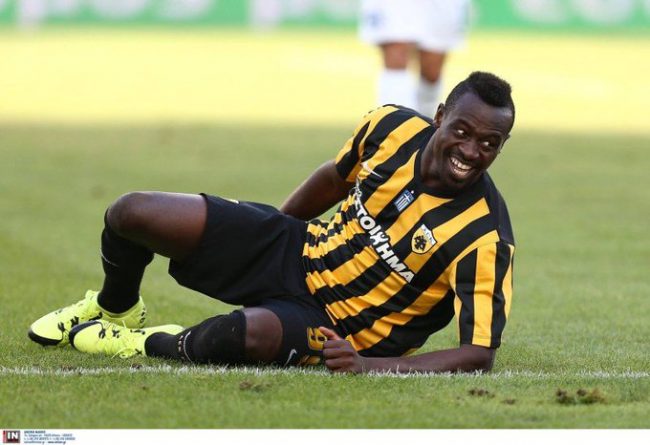
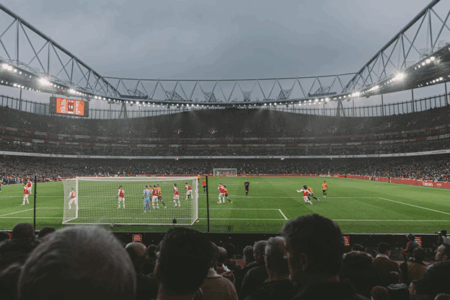
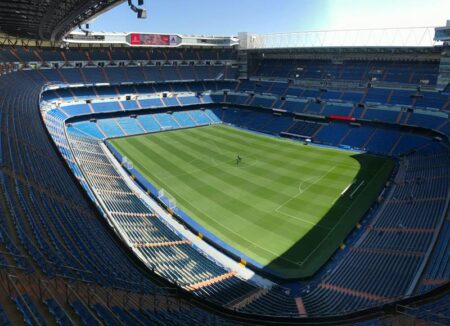
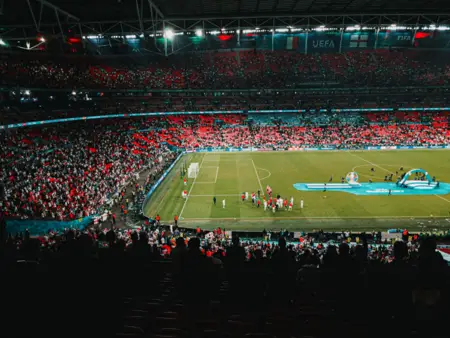

12 Comments
I have never heard about any of these ten Nigerian football players before.
Like serious? Then sorry to say you are not a Nigerian then.
I remember when a football programme was aired on radio and a caller called and said he use to play ball alongside Stanley okoro when they were much younger. The caller said he was 32 years then and okoro was about a year or months his senior. Other callers called in and called the other caller an enemy of progress. Now look how things panned out. Okoro was ’16 years during this tournament and was already an established player in our local league meaning he was about 15 years playing in the Nigerian league. How come na?
That same tournament produced the likes of ter stegen, gotze, coutinho, neymar, koke, isco, xhaka, morata and even Son of Tottenham. Okoro claimed to be little messi while messi has been firing from all cylinders, okoro went to almeria junior team and bullied those kids there but couldn’t make it to the senior team
Maybe a more talented and younger star was to be picked ahead of okoro but he may have bribed his way to that team.
I’m not saying other teams do not go with overaged players but we take ours to the extreme. The same can be said about Macaulay chrisantus. That tournament we won against Spain had a certain David de gea in post. We tend to go to this tournament with overage dudes who are right at their peak and fizzle out in few years. These cadet competitions are to discover talents not take grandpas to a fast route to Europe
Quick reminder, Victor won the record breaking golden boot at Chile not nwakali
Sometimes i wonder where the likes of AKINSOLA, OSANGA, UDOH, SHERIF ISA, YAKUBU ALFA, RABIU IBRAHIM & OSENI are actually plying their trade…
Are they still playing soccer??
13years ago(2007-2020) they were tearing the world apart at U17 level and we all thought we are going to rule the world of soccer in the nearest future, but reverse was the case….
So far the post MRI Scan Eaglets have proved that we achieve greater results with younger players.
FIFA introduced MRI scan during the 2009 U17 championship hosted by Nigeria and keen observers will agree with me that our U17 teams have achieved more in the MRI scan era.
From 2009 till date, there have been 6 tournaments out of which Nigeria participated in four (2009, 2013, 2015 & 2019) and got to the final on three different occassions (2009, 2013 and 2015), while winning the championship twice (2013 & 2015). A fantastic and enviable record, if you ask me.
We can well assume that the majority of the players that featured at these tournaments are relatively young because they passed the MRI scan. They may not be under the age of 17, but the scan has ensured that they are much younger than products of the pre- MRI scan.
Apart from the good results we’ve had with the recent generations, a good number of the players have made it at senior level, while playing in Europe’s top leagues.
From the 2009 set, we’ve had Ogenyi Onazi with over 50caps for the Super Eagles, AFCON champion in 2013, was at two World Cup tournaments , played for Lazio in Italy and still very active in Turkey 11yrs after warming the bench at U17 level. A success story, if you ask me.
Keneth Omeruo is another testimonial for the 2009 set of Eaglets. One of the few players in the world to have featured at the FIFA U17, U20 and senior world cups. Like Onazi, he was AFCON champion in 2013, AFCON semi-finalist in 2019, featured prominently in two FIFA world cup tournaments, over 50 caps with SE & still counting and still very active in the La Liga.
Ramon Azeez hasn’t done badly either. Another player to have featured at all levels of the FIFA World cup. Though with less than 10 caps for the SE, he has shared the pitch with the world’s best while featuring for Almeria and recently, Granada in the Spanish top flight. At 27, he still has much to offer the SE provided he continues to feature for Granada.
Kayode Olarewaju has also featured sparingly for the SE and still very active in Turkey, though the SE may be a tall dream for him at the moment, going by the caliber of talent available to GR for selection.
The 2013 set has Kelechi Iheanacho and Francis Uzoho having featured already at the Senior World cup, Uzoho adding an AFCON appearance to his profile and with both players still having much to offer. This set also has Taiwo Awoniyi, Dele Alampasu and Isaac Success, though struggling for attention in the top flight but still very much visible and could have caps in the SE in the near future ,provided they get their acts right.
With the wave making Victor Osimhen and Samuel Chukwueze already establishing their presence in the SE less than four years after their U17 triumph, the 2015 set might just be one whose products one should look out for.
The pre – MRI era had Nigeria feature in 8 out of 12 tournaments, getting to the final in 5 tournaments (1985, 1987, 1993, 2001 and 2007) and emerging champions on 3 occassions(1985, 1993 & 2007).
The 1993 set seems to be the most successful in this era with testimonials like Nwankwo Kanu amassing 88 caps for SE amongst other enviable achievements. Wilson Oruma, Celestine Babayaro, Karibe Ojigwe and Mobil Oparaku are also great products of this set that later had caps with SE, and represented Nigeria at the Olympics, FIFA World cup and AFCON. These guys also stood the test of time as they featured for SE several years after their 1993 triumph. Kanu retired from SE in 2010 (17 yrs after) and Oruma still featured prominently at the 2006 AFCON (13yrs after) while Babayaro left SE rather prematurely in 2004 (11 yrs after). These statistics are indeed enviable.
The 1985 set had Nduka Ugbade and Jonathan Akpoborie feature modestly for the SE. Nduka made it to Tunisia ’94 and won AFCON but Akpoborie never made it to any major tournament with the SE even though he performed creditably in almost all the games in which he was featured.
So much was expected from the 2007 team but the descent to obscurity of all the major actors in that set shocked the soccer world. Haruna Lukman and Obiora Nwankwo featured sparingly for SE and I dare say that their performances on those few occassions will be easily forgotten than remembered. Theirs is arguably the worst set, if you ask me.
Interestingly, some sets that Nigerians wouldn’t reckon with have produced stars that featured prominently and did well with the SE.
Scotland 1989 set produced Victor Ikpeba who not only featured prominently for SE in various AFCON and 2 World Cup competitions, but also emerged as African footballer of the year while playing for AS Monaco. This set also produced Godwin Opara who also played in SE and featured for PSG. Benedict Akwuegbu is another product of this set who represented Nigeria at AFCON in Year 2000.
The unceleberated Finland 2003 set produced Mikel Obi and Chinedu Obasi both of whom grew to become prominent in the SE. This set also produced a certain Emmanuel Sarki who moved on to represent the National team of Haiti (his mums country).
The largely unknown Gambia 2005 set didn’t even qualify for the world cup but still has Elderson Echiejile (over 60 caps for SE) and Sunday Mba to show off as testimonials.
So far, I think the Japan ’93 set remains the most successful based on their achievements after the U17 world cups, but the products of 2013 and 2015 still have enough time and potential to surpass the feat of these legends, provided they take the right career decisions.
@OmoEsan, greetings to you. Very insightful bits of info you presented here. I’ve often argued that the true measure of success at the U-17 world cup is not in winning the cup but in what percentage of the squad makes it to the top flight of their profession and have long lasting careers.
Development is afterall what the purpose of this tournament is. Once these players develop, the senior national team naturally benefits.
There is no way that i would not acknowledge the hard work that went into producing such a piece.
Thanks Omo Esan.
who else do we blame, Player or agent. I believe both, many of our players are quick to want to rush to europe without proper planning. And then you have agaent who are just after the fees they will collect, not making a better arrangement for the players future
@OmoEsan, well done for the info. However, Jonathan Akpoborie was part of the Senegal ’92 bronze winning Green Eagles squad.
Lord Amo, Deo & Nye, thanks so much for your comments.
@Nye, thanks for the correction about Akpoborie. I have crosschecked and discovered that asides Senegal ’92 he was also at Ghana Nigeria 2000.
Thumbs up for you.
Please,complete sports,,,can u give an update on VICTOR BROWN? The most talented attacking midfielder during the 2001 FIFA U-17 WORLD CUP